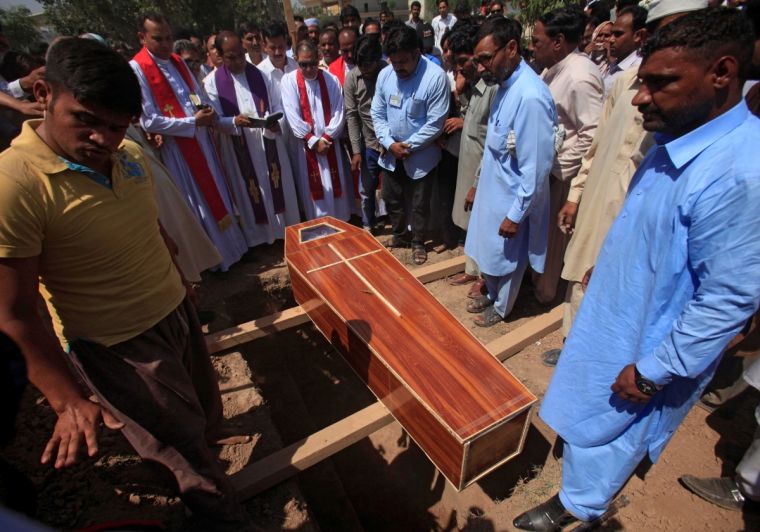'Post-colonial guilt' is hindering UK's response to global persecution, says bishop

The bishop leading a government review into persecution against Christians has claimed that the UK's response has been hindered by a sense of "post-colonial guilt".
Speaking to The Times before the deadly bombing of three churches in Sri Lanka on Easter Sunday, the Bishop of Truro, the Rt Rev Philip Mounstephen, warned that inaction would only hurt Christians already suffering from poverty as a result of discrimination against them.
"There is a lot of post-colonial guilt around a residual sense that the Christian faith is an expression of white western privilege. Whereas actually the Christian faith is overwhelmingly a phenomenon of the . . . global poor and people who, by their very socio-economic status, are vulnerable," he said.
The bishop was appointed in January to oversee the review launched by the foreign secretary, Jeremy Hunt, who said at the time that he wanted to "banish any hesitation to look into this issue without fear or favour that may exist because of our imperial history, because of the concerns that some people might have in linking the activities of missionaries in the nineteenth century to misguided imperialism".
"And all those concerns may have led to a hesitation to really look at this issue properly, and we don't want that to happen," Mr Hunt admitted.
Bishop Mountstephen told The Times that he did not want to make a "special case" for Christians but that there was a "significant deficit" that needed to made up in light of the statistics on Christian persecution.
"If 80 per cent of discrimination and persecution globally is directed against one faith group, then there is an imbalance," he said.
He added that in some parts of the world, there was a "real reluctance" to admit that religion was a factor in violence being perpetrated against Christians.
"One post in southeast Asia said specifically: 'We do not believe that Christians are the subject of persecution in this country.' On the very same day, that country's own human rights commission pointed the finger at its government for orchestrating the disappearance, and possibly deaths, of a Shia Muslim cleric and a Christian pastor," he said.
Earlier this month, Malaysia's human rights commission accused the police of being involved in the 2017 disappearance of Christian pastor Raymond Koh, 63, and Muslim social activist, Amri Che Mat, who went missing in 2016.
Last week, the leaders of the Church of England and Roman Catholic Church in England and Wales made a joint submission to the Foreign Office review in which they urged the government to take "meaningful action" on persecution and build the promotion of religious freedom into its work across all policy areas, including foreign relations, aid, security, trade and asylum.
"Christians form an important part of the social fabric in almost every country of the world. Yet in many places, our Christian sisters and brothers face persecution of an intensity and extent unprecedented in many centuries," the submission said.
It continued: "We must remember, too, that these threats to freedom of religion or belief are not restricted to Christians alone. Rather, it is a widespread experience of the followers of other faiths.
"Many are deprived of this basic expression of their human dignity. Similar threats are also faced by atheists and agnostics who seek to uphold crucial decisions of conscience.
"We ask Her Majesty's Government to take note of the practical recommendations offered by our Churches in this Submission and to take meaningful action not only in protecting Christians facing persecution but also in promoting freedom of religion and belief more widely."
Initial findings from the review are expected to be published next week followed by the publication of the full report in June.











